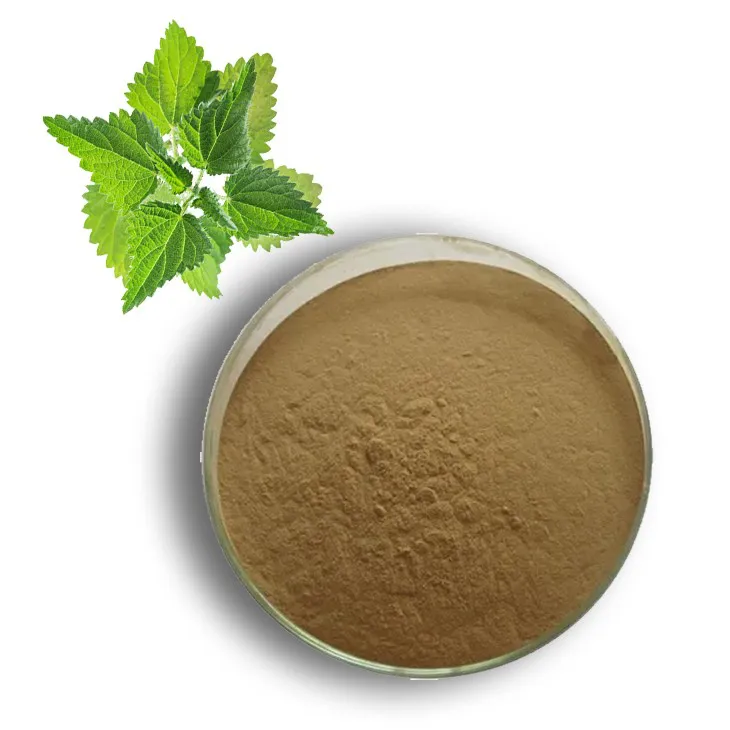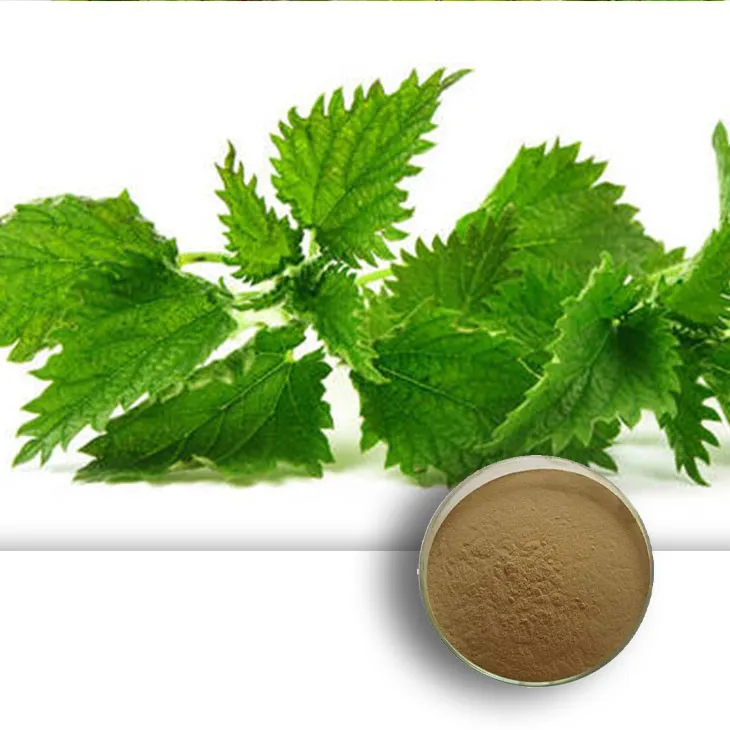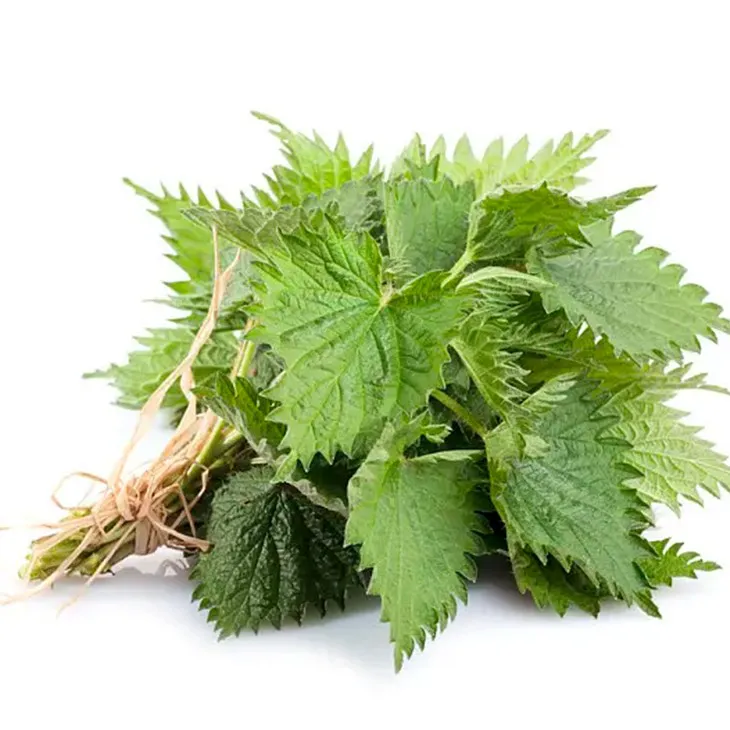- 0086-571-85302990
- sales@greenskybio.com
Nettle Leaf Extract: Benefits, Uses and Possible Side Effects
2024-11-14

1. Introduction
Nettle leaf extract has been steadily emerging as a topic of great interest in recent years. Derived from the stinging nettle plant (Urtica dioica), this extract has a long history of use in traditional medicine across different cultures. The stinging nettle is a perennial herb that is native to Europe, Asia, northern Africa, and North America. Its leaves are rich in various bioactive compounds, which are responsible for its numerous potential health benefits and wide range of uses.

2. Benefits of Nettle leaf extract
2.1. Anti - inflammatory Properties
One of the most notable benefits of Nettle leaf extract is its anti - inflammatory nature. It contains compounds such as flavonoids, phenolic acids, and fatty acids that can help reduce inflammation in the body. This makes it potentially useful in treating conditions associated with chronic inflammation, such as arthritis. Inflammation is a key factor in the progression of arthritis, and nettle leaf extract may provide relief by reducing joint pain and swelling.
2.2. Allergy Relief
Nettle leaf extract can also offer relief from allergies. It works by inhibiting the release of histamine, which is a chemical released by the body during an allergic reaction. Histamine is responsible for symptoms such as itching, sneezing, and a runny nose. By reducing histamine levels, nettle leaf extract may help alleviate these allergy symptoms, making it a natural alternative to over - the - counter anti - histamine medications.
2.3. Blood Sugar Regulation
There is evidence to suggest that nettle leaf extract may play a role in blood sugar regulation. It can improve insulin sensitivity, which is crucial for maintaining normal blood sugar levels. For individuals with diabetes or those at risk of developing diabetes, nettle leaf extract may be a beneficial addition to their diet or treatment plan. However, it should not replace medical treatment, but rather be used as a complementary approach.
2.4. Antioxidant Activity
The presence of antioxidants in nettle leaf extract is another significant benefit. Antioxidants help protect the body against oxidative stress, which is caused by free radicals. Free radicals are unstable molecules that can damage cells and contribute to the development of various diseases, including cancer and heart disease. The antioxidants in nettle leaf extract, such as vitamin C and beta - carotene, can neutralize these free radicals, reducing the risk of cell damage.

3. Uses of Nettle Leaf Extract
3.1. In Herbal Medicine
- In traditional herbal medicine, nettle leaf extract has been used to treat a variety of ailments. It can be prepared as a tea, tincture, or capsule for internal use. For example, the tea made from nettle leaves is often used to treat urinary tract infections. Nettle leaf tea has diuretic properties, which means it can increase urine production, helping to flush out bacteria from the urinary tract.
- It is also used topically in the form of creams or ointments. Nettle leaf extract - based creams can be applied to the skin to relieve eczema, psoriasis, and other skin conditions. The anti - inflammatory and antioxidant properties of the extract can help soothe irritated skin and reduce redness.
3.2. In the Cosmetics Industry
- Nettle leaf extract has found its way into the cosmetics industry. It is used in hair care products due to its ability to promote hair growth. The extract can stimulate the hair follicles, potentially increasing hair thickness and reducing hair loss. Shampoos and conditioners containing nettle leaf extract are becoming increasingly popular among those looking for natural solutions for hair problems.
- In skin care products, it is used for its anti - aging properties. The antioxidants in the extract can help prevent premature skin aging by reducing the damage caused by free radicals. Nettle leaf extract - based face creams and serums can improve skin elasticity and reduce the appearance of wrinkles.
3.3. In the Food and Beverage Industry
- Nettle leaves can be used to make nettle - flavored foods and beverages. Nettle soup is a popular dish in some regions, where the young nettle leaves are cooked with other vegetables and seasonings. The extract can also be added to smoothies or juices, providing a nutrient - rich boost. In addition to its health benefits, nettle leaf extract can add a unique flavor profile to food and drinks.
- Some breweries have even experimented with using nettle leaves in the brewing process to create unique - flavored beers. The nettle leaves can add a slightly bitter and earthy flavor to the beer, appealing to those who enjoy more complex and unusual beer flavors.

4. Possible Side Effects of Nettle Leaf Extract
4.1. Gastrointestinal Disturbances
Although nettle leaf extract is generally considered safe, some people may experience gastrointestinal disturbances such as nausea, vomiting, or diarrhea. These side effects are more likely to occur when the extract is consumed in large amounts or on an empty stomach. To minimize the risk of such side effects, it is recommended to start with a small dose and gradually increase it, and to take the extract with food.
4.2. Allergic Reactions
Despite its potential to relieve allergies, some individuals may be allergic to nettle leaf extract itself. Allergic reactions can range from mild skin rashes to more severe symptoms such as difficulty breathing. People with known allergies to plants in the Urticaceae family should avoid using nettle leaf extract. If any signs of an allergic reaction occur, such as itching, swelling, or shortness of breath, immediate medical attention should be sought.
4.3. Interaction with Medications
- Nettle leaf extract may interact with certain medications. For example, it can potentially interfere with blood - thinning medications such as warfarin. Since nettle leaf extract has blood - clotting properties, it may increase the risk of bleeding when combined with these medications. It is crucial for individuals taking such medications to consult their healthcare provider before using nettle leaf extract.
- It may also interact with medications for diabetes. As mentioned earlier, nettle leaf extract can affect blood sugar levels. If combined with diabetes medications, it could cause hypoglycemia (low blood sugar). Therefore, careful monitoring of blood sugar levels is necessary if using nettle leaf extract along with diabetes medications.
5. Conclusion
Nettle leaf extract offers a wide range of potential benefits, from anti - inflammatory and antioxidant properties to uses in various industries such as herbal medicine, cosmetics, and food. However, it is important to be aware of its possible side effects, especially when considering using it for health - related purposes. As with any natural remedy, it should not replace medical treatment, but rather be used as a complementary approach under the guidance of a healthcare professional. By understanding both the benefits and risks associated with nettle leaf extract, individuals can make more informed decisions about whether it is a suitable option for them.
FAQ:
What are the main benefits of nettle leaf extract?
Nettle leaf extract offers several benefits. It has anti - inflammatory properties, which can help with conditions like arthritis. It may also support urinary health by promoting proper kidney function and helping to reduce water retention. Additionally, it is rich in nutrients such as vitamins A, C, and K, as well as minerals like iron, calcium, and magnesium, which are beneficial for overall health.
How can nettle leaf extract be used?
Nettle leaf extract can be used in various ways. It can be taken as a dietary supplement in capsule or tincture form. In some traditional medicine practices, it is used to make herbal teas for its potential health - promoting effects. It is also sometimes used topically in the form of creams or ointments for skin conditions like eczema or psoriasis.
Are there any side effects of nettle leaf extract?
Yes, there are possible side effects. Some people may experience mild digestive issues such as nausea, diarrhea, or stomach upset when taking nettle leaf extract. In addition, direct contact with fresh nettle plants can cause skin irritation due to the presence of stinging hairs. It is also important to note that nettle may interact with certain medications, so it is advisable to consult a healthcare provider before using it.
Can nettle leaf extract be used for hair and skin health?
Yes, it can potentially be beneficial for hair and skin health. For hair, it may help strengthen the hair follicles and promote hair growth due to its nutrient content. For skin, when used topically, it may soothe irritated skin and reduce inflammation associated with certain skin conditions. However, more research is needed to fully understand its effectiveness in these areas.
Is nettle leaf extract safe for everyone?
Nettle leaf extract is not necessarily safe for everyone. Pregnant or breastfeeding women should be cautious as there is not enough research to determine its safety during these periods. People with allergies to plants in the Urticaceae family should avoid it. Also, those with certain medical conditions or taking medications should consult a doctor before using it to avoid potential interactions.
Related literature
- The Health Benefits of Nettle Leaf Extract"
- "Nettle Leaf Extract: A Comprehensive Review of Its Uses and Effects"
- "Potential Side Effects of Nettle Leaf Extract: An Evidence - Based Analysis"
- ▶ Hesperidin
- ▶ Citrus Bioflavonoids
- ▶ Plant Extract
- ▶ lycopene
- ▶ Diosmin
- ▶ Grape seed extract
- ▶ Sea buckthorn Juice Powder
- ▶ Fruit Juice Powder
- ▶ Hops Extract
- ▶ Artichoke Extract
- ▶ Mushroom extract
- ▶ Astaxanthin
- ▶ Green Tea Extract
- ▶ Curcumin
- ▶ Horse Chestnut Extract
- ▶ Other Product
- ▶ Boswellia Serrata Extract
- ▶ Resveratrol
- ▶ Marigold Extract
- ▶ Grape Leaf Extract
- ▶ New Product
- ▶ Aminolevulinic acid
- ▶ Cranberry Extract
- ▶ Red Yeast Rice
- ▶ Red Wine Extract
-
Hedyotis Diffusa Extract
2024-11-14
-
Tormentil Extract
2024-11-14
-
Natural grape seed extract
2024-11-14
-
Alfalfa Meal
2024-11-14
-
Pine bark Extract Powder
2024-11-14
-
Lily extract
2024-11-14
-
Green coffee bean Extract
2024-11-14
-
Maca Extract
2024-11-14
-
Kidney Bean Extract
2024-11-14
-
Golden Seal Extract
2024-11-14





















